Estimated reading time: 8 minutes
As a parent, you want to keep your children safe and provide for their needs. But in an emergency situation, your children might need to keep themselves safe and find ways to provide for their own needs. It is never too early to start teaching children survival skills so that if the unthinkable does happen, they'll be prepared to handle it.
Imagine if your child got lost in the woods – would they be able to take care of themselves until they were found? What if there were an emergency and you were injured? Would your child know what to do? Learning survival skills is not only important, it can also be a source of family fun and bonding.
Want to save this post for later? Click Here to Pin It On Pinterest!
Here are 16 survival skills your child should learn:
1. Fire Skills and Safety
One of the best ways to teach kids about fire safety is to teach them how to safely and correctly build a fire. And should your child get lost in the woods, being able to safely keep themselves warm could save their life – or yours.
Only you know when your child is responsible enough to safely handle matches or other types of fire building items. However, it is never too early to teach them about safety skills or to show them how you can build a fire safely.
There are so many different ways to safely build a fire. MomWithAPrep shares a few interesting methods that you can learn and share with your kids. Check out her site, here.
2. Keep Warm Without a Fire
If it is too dangerous to make a fire, or your child doesn’t have the ability to make one, there are still ways to stay warm. For example, kids can stuff their clothes with dry leaves and moss to insulate themselves. This is known as the scarecrow method. Here are some more tips for staying warm.
3. Shelter
A critical piece of survival is finding or making a good shelter to keep you warm and dry. This is a fun skill for kids to learn as they can practice their shelter building skills by building indoor forts and backyard tents and have fun scavenging for supplies in the woods.
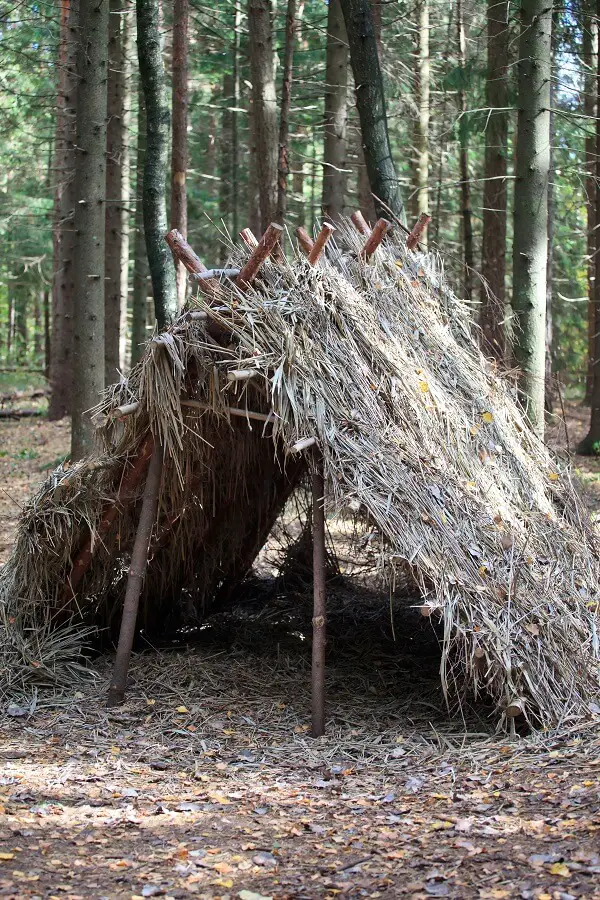
Building a good shelter has to do with finding a dry location, using the right materials, and knowing how to keep it all together. There are many different types of shelters that kids can learn to make, including these at the Boys Life website.
4. Water Safety
A key to drowning prevention is learning how to swim. Teach your children all about water safety and get them swimming lessons. Here are a few ideas to get your started.
5. Drinking Water
It is important that kids know you can’t just drink from any puddle of water you see. There are very real dangers lurking in unknown water.
However, staying hydrated is a key part of survival, and it will help your child if they know how to find—or create—safe drinking water in an emergency. Check this out to find natural ways to find drinkable water.
6. Personal Hygiene
We often take personal hygiene for granted because it is so easy for us to use the bathroom, wash our hands, and take showers. However, these mundane tasks become a lot harder and even more critical off-grid or in a survival situation.
Teach your kids the importance of daily hygiene, but also teach them creative ways to care for themselves when they are off-grid. Here’s how to teach and use personal hygiene skills, both on and off the grid.
7. Finding Food
Being able to find food is an excellent skill for kids to learn. There are lots of edible weeds and berries in the wild, but there are also lots of dangerously toxic plants, too.
Make sure your kids know the dangers of toxic plants so they don't accidentally eat something that makes them sick. You might want to take your children to a foraging workshop or bring them along foraging with you. Ashley Adamant gives advice for teaching kids to forage, here.
When your children are old enough, you might also teach them to hunt and fish responsibly, but don’t underestimate the value of teaching them how to choose the appropriate foods at a grocery store or farm stand.
8. Cooking
Cooking is a skill that kids can learn in the country, city, and anywhere in between. Start with easy skills such as making toast or scrambled eggs and slowly increase the difficulty, teaching your children to use cutlery, how to safely use the oven, and how to cook food to the right temperatures or follow a recipe.
Momables gives advice for age-appropriate cooking skills here. Cooking skills can also cross-over into emergency skills and cooking over campfires is a great way to practice. Here are some fun, family-friendly recipes to try the next time you go camping (or just want to cook in the backyard).
9. Navigation
In the age of cell phones, we have become terribly dependent on Google Maps and Siri to get us where we are going. But we can all benefit from learning navigation skills, including our kids! The basics of navigation can be taught through map reading and using a compass.
Check out this website to learn how to teach kids to read a map. Geocaching and Pokemon Go are also fun ways to practice navigating in their neighborhood or town.
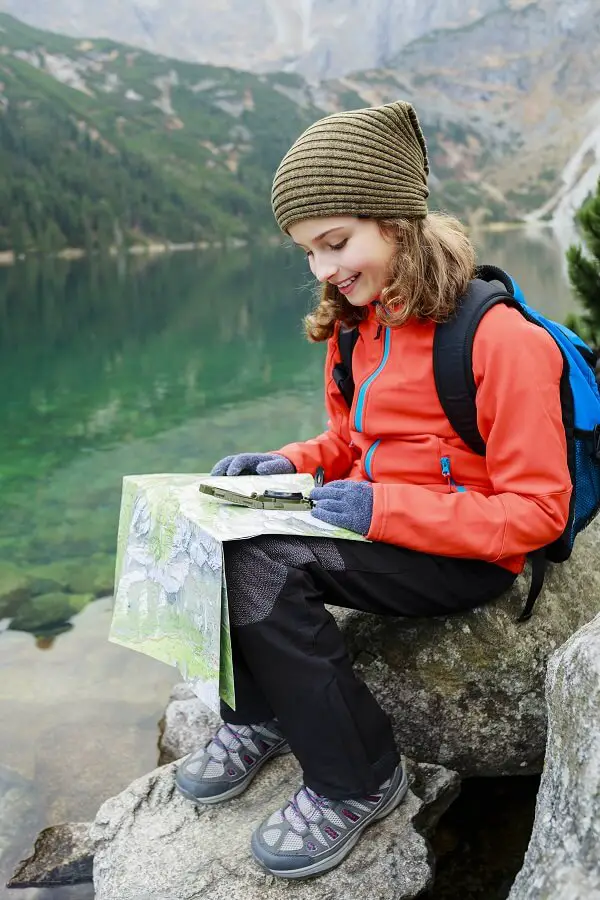
10. Knife Skills
Being able to safely use a knife might be a critical skill in an emergency situation. Kids that can safely use a knife will have an easier time cooking, making tools, hunting, fishing, and doing other types of work around the homestead or campsite.
You can start teaching basic knife safety when kids are still very young, and it helps to start in the kitchen. Here’s a link for how to teach kitchen knife use, safely.
11. Staying Calm
In an emergency, the worst thing you can do is panic. Staying calm might be the most important skill you and your children can learn. When you are calm, you can think rationally about what to do to keep yourself safe and alive. Here's a guide on how to support your child's resilience during a time of crisis.
12. Basic First Aid
Knowing some basic first aid skills can go a long way towards helping a child stay calm and safe. You may not be there when a child gets hurt, but if they know how to take care of themselves or others, they will increase their chances of surviving an emergency situation. Here are some basic first aid skills that you might want to teach your child or children.
13. Self-defense
Self-defense is a skill you hope you won’t ever have to use, but it is an important skill set for being safe. One aspect of self-defense is situational awareness—knowing what’s going on around you all of the time. A child also needs to know when to try to escape and when they need to fight back.
Whatever self-defense skills you teach your child, it is important to teach them without scaring them. Find out more information about how to teach your children self-defense here.
14. Gardening
Growing your own food is one of the most satisfying things you can do, and kids can learn how, too. And learning to grow your own food is a critical skill for homesteaders, preppers, and everyone in between.
KidsGardening.org is an excellent resource for parents and teachers to help their kids learn how to grow, complete with lesson plans and ideas. Planet Natural also has a great article on gardening activities for kids and how to get kids interested in gardening. You can read their article, here.
15. Animal Care
Caring for animals teaches kids responsibility. It is also part of learning to raise your own food. There are all kinds of ways to teach kids to care for animals, from having them walk the family dog to learning how to milk the family dairy goats.
Even young children can assist with feeding chickens, gathering eggs, feeding the dog, and filling water buckets. Of course, children should always be supervised around animals. Here are some animal chores kids can do, broken down by age.
16. Basic Chores for the Home and Farm
Many home and farm chores will carry over into survival skills and homesteading or prepping. Children are amazingly capable of learning and carrying out all kinds of chores and skills if we teach them how and teach them to be safe.
Here are a few more chore ideas from the Elliot Family Homestead for your family to incorporate into your daily routines to help you raise smart, capable children who are ready to handle the emergencies that life throws at them.
There are many skills that children can learn to help them in survival situations. Of course, safety should be the first priority when teaching these skills. They should also be taught in ways that are fun and in ways that won’t scare them. Learning together is a great way for families to bond and grow as you work towards being prepared for difficult situations.
Like this post? Don't Forget to Pin It On Pinterest!



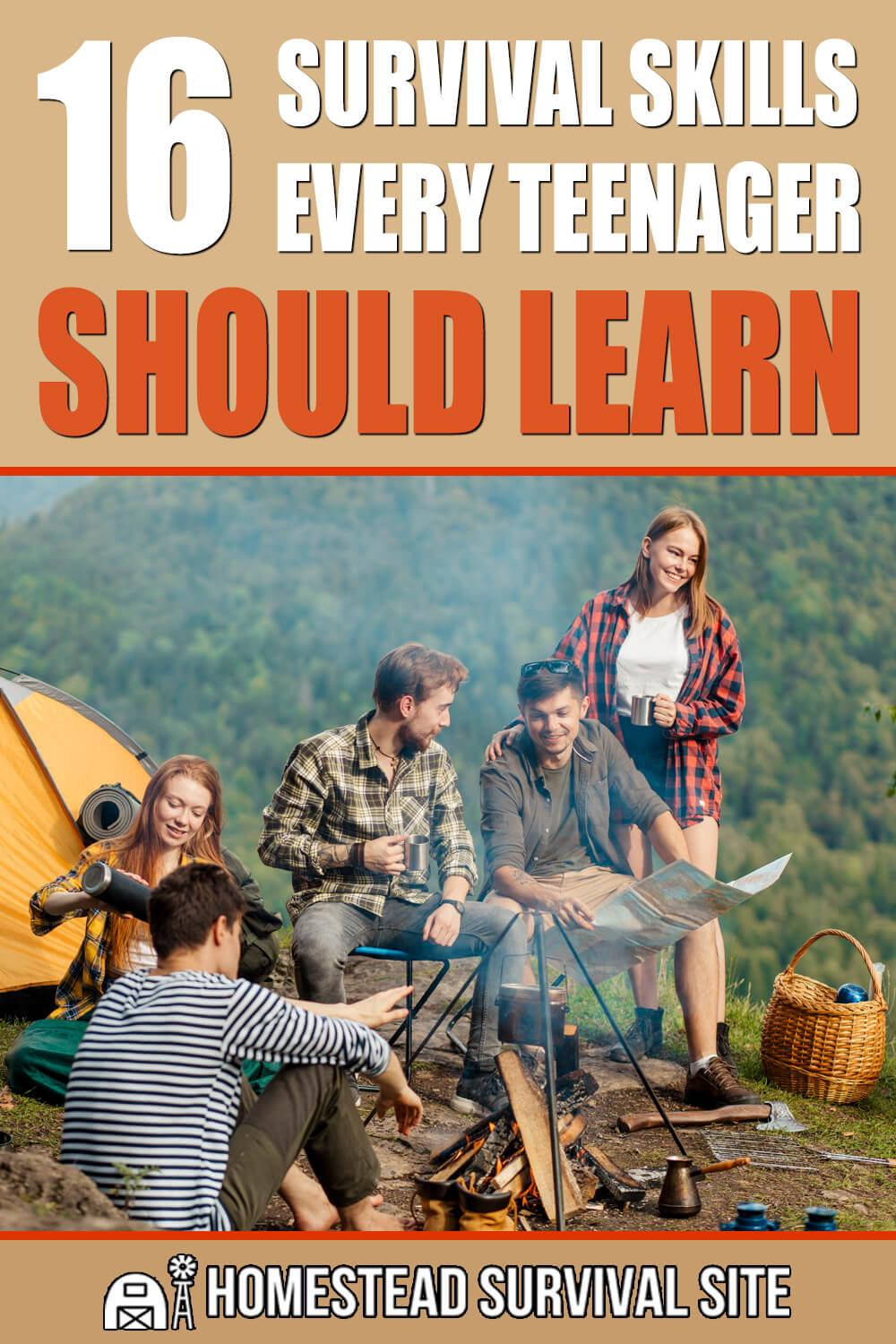




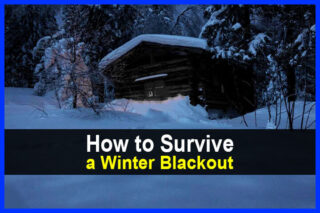
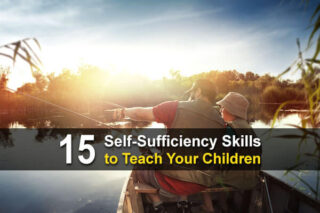
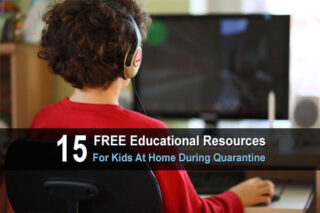

These skills are what is needed for all of us maybe we shoud teach them in schools. We are losing these skills .
Sad but true unless we teach our children. BUT, they have to be willing, open and teachable ….